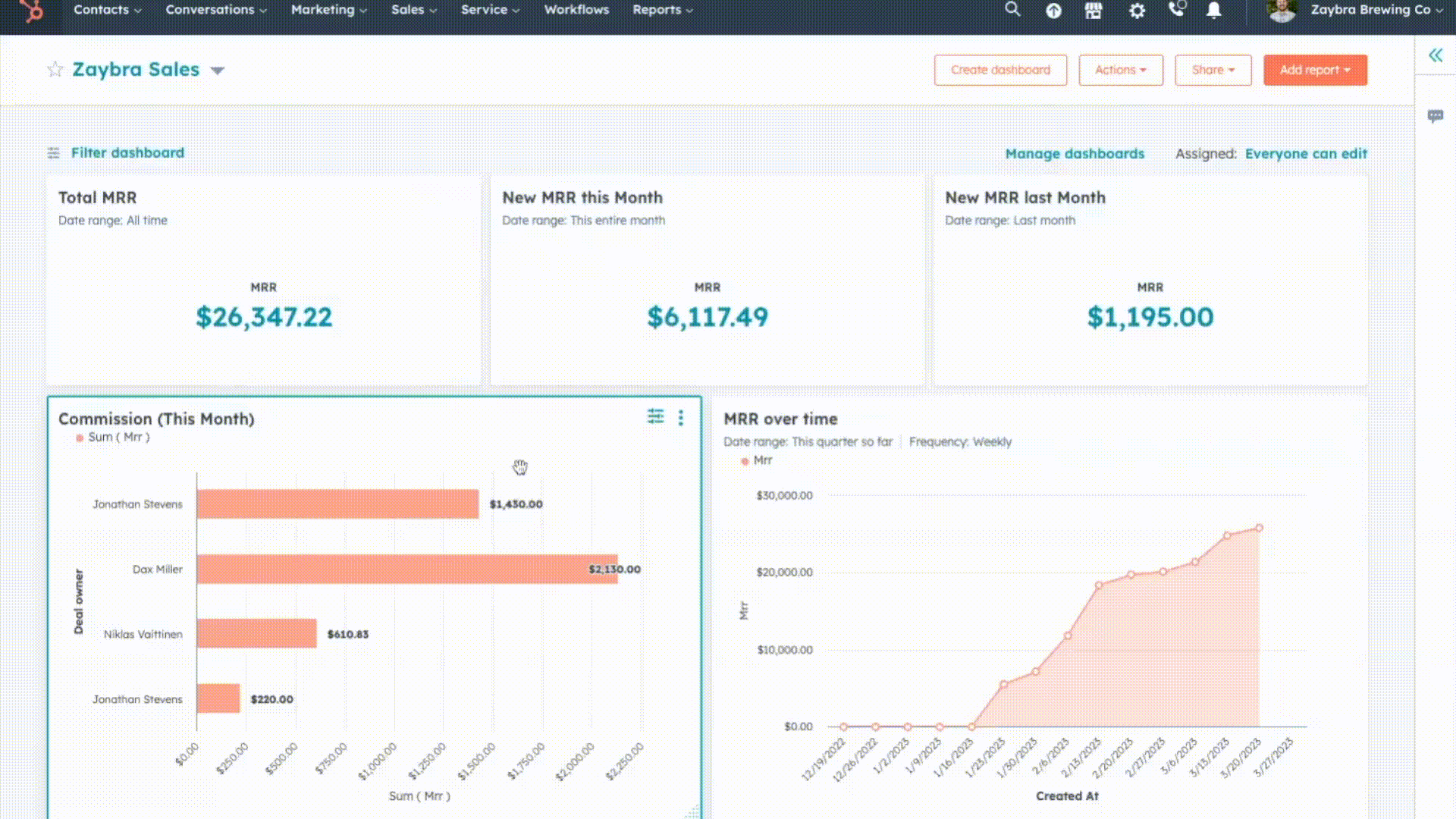These days, the digital transformation of customer relationship management (CRM) systems has transitioned from a competitive advantage to a fundamental business necessity. In this rapidly evolving landscape, businesses are challenged not only to keep pace but to leverage CRM technologies in ways that propel them ahead of the curve. This guide aims to empower your journey through the latest in CRM optimisation and integration strategies, ensuring your business not only meets but exceeds its operational and customer engagement goals.
Section 1: Understanding CRM Challenges and Goals
The Ever-Evolving CRM Challenges
Today’s businesses face a myriad of challenges in managing customer relationships, from integration of disparate data sources to ensuring user adoption across departments. The complexity of customer data, coupled with the need for personalised, timely interactions, requires a strategic approach to CRM utilisation.
Strategic Goals Achieved Through CRM Optimisation
The ultimate goal of CRM optimisation is to transform these challenges into strategic opportunities. Enhanced data integrity, streamlined sales processes, and a holistic view of the customer journey to allow businesses to:
- Improve customer satisfaction and loyalty.
- Increase sales efficiency and revenue.
- Drive data-driven decision-making and forecasting accuracy.
By addressing these common challenges with targeted CRM strategies, businesses can unlock new levels of productivity, customer insight, and market agility.
Section 2: Leveraging Industry Insights
Emerging Trends in CRM Technology
The CRM landscape is defined by several key technological advancements. Artificial Intelligence (AI) and Machine Learning (ML) are at the forefront, offering predictive analytics to forecast customer behaviours and preferences. Omnichannel strategies are becoming more refined, providing seamless customer experiences across digital and physical touchpoints. Additionally, mobile CRM capabilities are expanding, allowing sales teams to access crucial customer data anytime, anywhere.
Adapting Across Industries
Different industries are harnessing these technologies in unique ways. Retailers are leveraging omnichannel CRM strategies to unify online and in-store customer data, enhancing personalised marketing efforts. Meanwhile service-based businesses are utilising AI-driven insights to improve customer service and retention. Manufacturing sectors are focusing on mobile CRM to equip their sales forces with real-time inventory and customer interaction data.
The New CRM Strategy
To stay competitive, businesses must adopt a proactive CRM strategy that embraces these trends. This involves not just implementing new technologies but also ensuring your CRM system can integrate seamlessly with other business tools, from marketing automation platforms to ERP systems. The goal is to create a cohesive ecosystem that supports data-driven decision-making and offers a 360-degree view of the customer journey.
Nothing illustrates the potential of CRM optimisation and integration better than real-world success stories. By examining how businesses have transformed their CRM strategies, we gain valuable insights into practical applications and the tangible benefits they can bring.
Real-World Success: Tiffany Largie’s Journey
Tiffany Largie’s transition from traditional sales methods to creating a £2 million business with Pipedrive showcases the transformative power of CRM. Faced with the challenges of managing vast amounts of data and a team’s varying organisational skills, Tiffany leveraged Pipedrive’s features such as deal management, multiple pipelines, and automation to streamline processes and uncover hidden revenue opportunities.
Key Takeaways for Your Business:
- Embrace Technology for Growth: Tiffany’s success underscores the importance of adopting CRM solutions that offer comprehensive management and automation capabilities.
- Data Management is Crucial: Efficiency data handling can reveal untapped revenue streams and improve decision-making.
- Customisation for Team Efficiency: Tailoring your CRM to fit your team’s needs can significantly enhance productivity and customer engagement.
Tiffany’s story is testament to how strategic CRM adoption can lead to remarkable business growth and operational efficiency. S
Section 3: Expert Contributions
Harnessing Expertise for CRM Mastery
The landscape of CRM is constantly evolving, making the insights of industry experts invaluable. This section compiles wisdom from CRM thought leaders, offering advanced strategies and foresights into future developments.
Tips and Best Practices
Experts emphasise the importance of a user-centric approach to CRM optimisation.
Key advice includes:
- Personalisation at Scale: Leveraging CRM data to personalise customer interactions without compromising efficiency.
- Integration as a Foundation: Experts highlight that the true power of a CRM lies in its ability to integrate seamlessly with other tools, creating a unified tech ecosystem.
- Embracing AI for Smarter CRM: AI and ML are not just buzzwords but essential tools for predictive analytics, enhancing customer service, and automating mundane tasks.
Looking Ahead: The Future of CRM
Predictions for the future of CRM focus on even greater integration of AI, deeper analytics capabilities, and the rise of voice and conversational user interfaces. Experts foresee CRM systems becoming more proactive, offering suggestions and actions based on real-time data analysis.
Section 4: Technical Deep Dive
Optimising CRM with Advanced Features and Integration
This section focuses on the practical aspects of CRM technology, offering a closer look at how specific features and integrations can enhance business operations.
CRM Platforms Overview
Popular CRM platforms like Pipedrive, HubSpot and OpenCRM offer a range of advanced features designed for deep customisation and integration. Key functionalities to explore include:
- Automation Tools: Automate repetitive tasks and workflows to increase efficiency.
- Analytics and Reporting: Utilise built-in analytics for deeper insights into customer behaviour and sales performance.
- Third-Party Integrations: Extend the capabilities of your CRM with integrations for email marketing (E.g. Force24), social media management and more.
Unlocking Potential with Integrations
The integration of CRM systems with other business tools (e.g., marketing automation platforms, ERP systems, customer service software) is critical for achieving a unified view of customer interactions across all touchpoints. Strategies for successful integration include:
- API Utilisation: Leverage APIs for custom integrations that fit your specific business needs.
- Middleware Solutions: Consider middleware platforms like Zapier or Make.com for connecting apps without extensive coding.
- Vendor Support: Take advantage of support and resources from CRM vendors for smooth integration processes.
- Partner Assistance: Most CRM vendors also partner with experts who can help you map out and deploy your integrations.
Understanding and leveraging the technical capabilities of your CRM system are crucial for optimising your sales and marketing strategies. By focusing on advanced features and seamless integration, businesses can ensure their CRM systems provide maximum value.
Section 5: Engaging with your CRM
Maximising CRM Engagement and Utilisation
Effective CRM Utilisation transcends technical implementation, focusing on how businesses can engage with their systems to drive real value. This engagement is pivotal for maximising the return on CRM investments.
- User Adoption and Training: Successful CRM strategies hinge on user adoption. Invest in comprehensive training programs to ensure your team understands how to leverage CRM functionalities fully.
- Data Hygiene: Regular data cleaning and maintenance are essential to keep your CRM system efficient and reliable. Establish routines for data entry, updates, and audits.
- Feedback Loops: Create mechanisms for collecting feedback from CRM users within your organisation. This feedback is invaluable for refining processes and identifying areas for further optimisation.
Actionable Steps for Businesses:
- Conduct a CRM audit to identify usage gaps and areas for improvement.
- Implement a continuous learning programme for CRM users, focusing on advanced features and best practices.
- Engage a CRM consultant for personalised advice on optimising your system.
The Path Forward with CRM
As we look forward, the role of CRM in driving business success has never been more evident. By embracing optimisation and integration strategies, businesses can enhance efficiency, improve customer engagement, and make data-driven decisions with confidence. This guide has outlined the foundational steps for leveraging CRM technologies to their fullest potential. The journey to CRM excellence is ongoing, and Flowbird is here to guide you every step of the way.
Let’s transform insights into action and chart a course for success in the ever-evolving business landscape. If you’ve reached this far, your journey towards CRM mastery has already begun.





